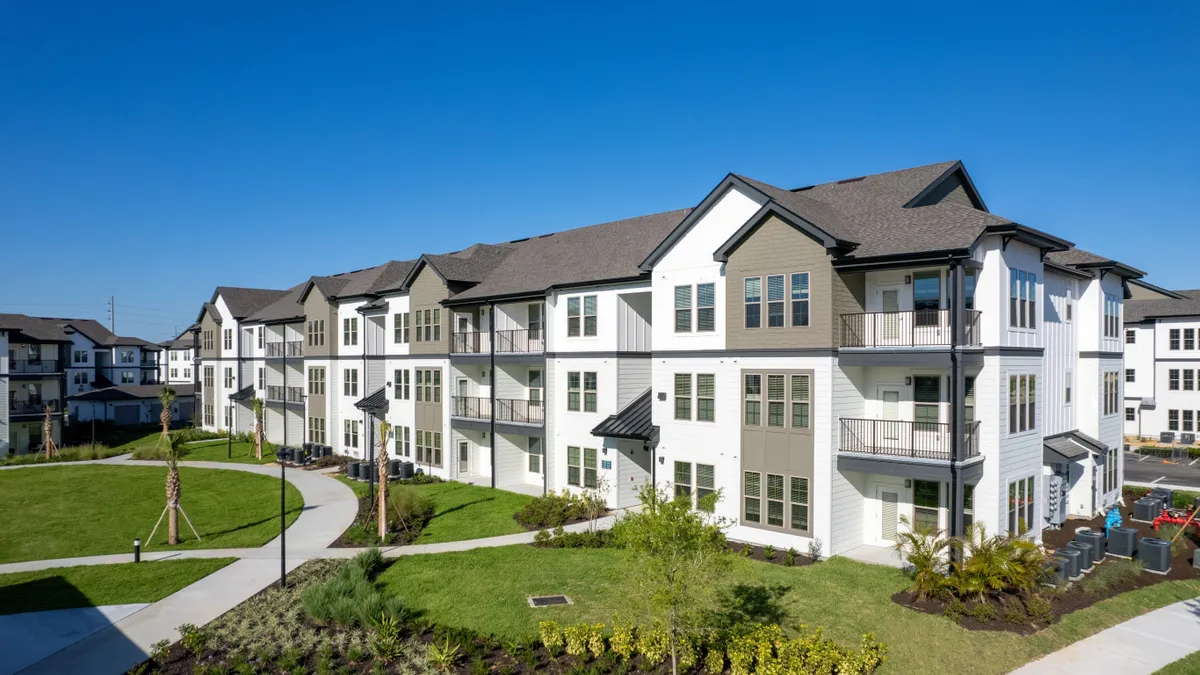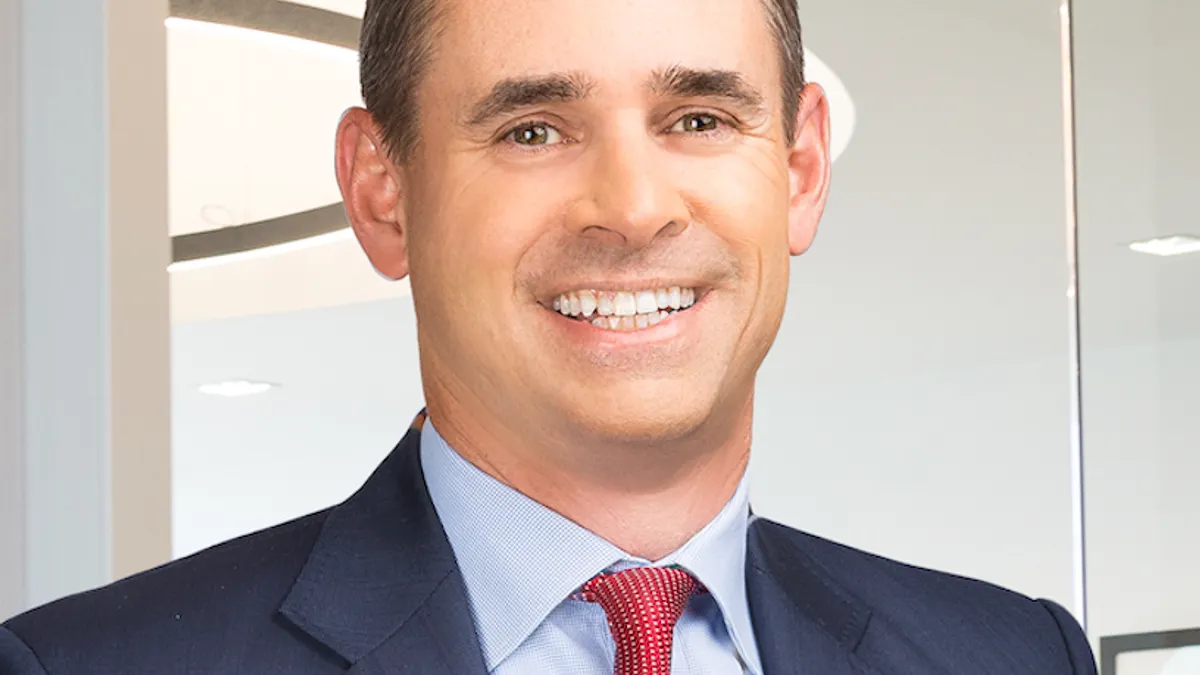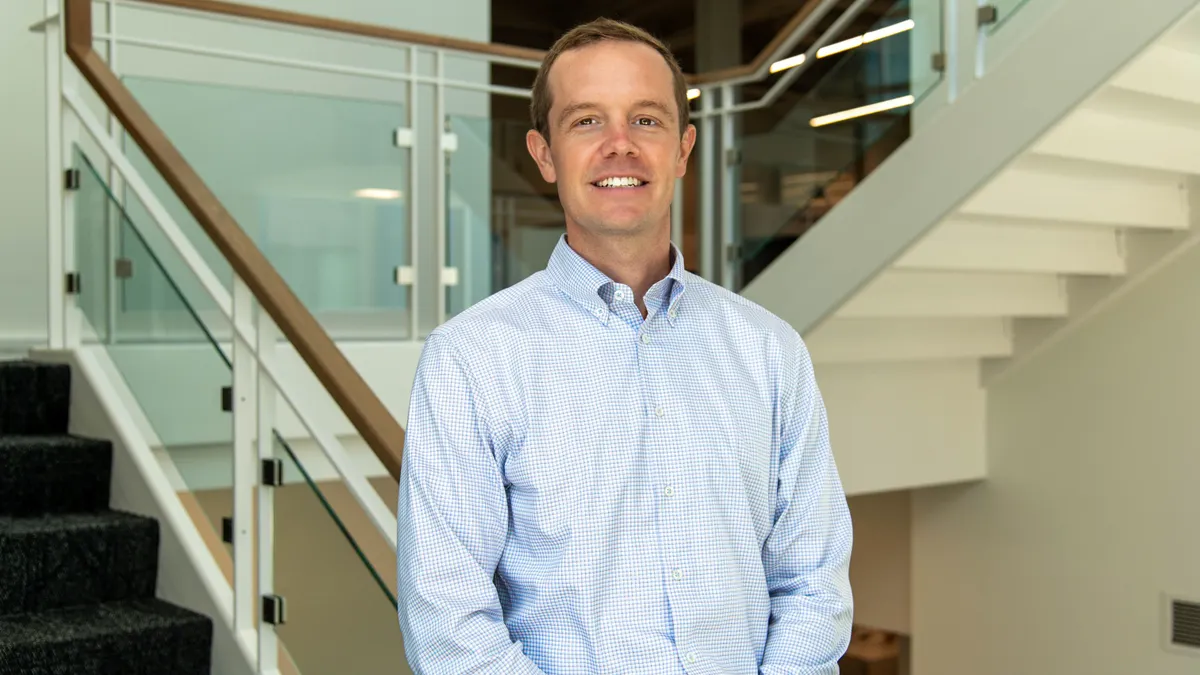Many multifamily executives play coy when asked about their growth plans. Instead of providing a target for the number of units they want to own, manage or build, they’ll offer platitudes about not growing for growth’s sake or how they want to be the best, not the biggest.
Although Chris Finlay, founder and CEO of Vienna, Virginia-based apartment owner, manager and developer Middleburg Communities, holds many of those same priorities, he isn’t shy about sharing his growth goals.
Finlay would like Middleburg, which broke ground on around 800 units in 2021, to crack the top 10 in both apartment development and construction starts. That’s no small feat since a company would have needed to start 3,625 units last year in order to make the 2022 NMHC Top Developer list.
But Finlay’s goals for property management are even more ambitious: He wants his roughly 5,000-unit management business to get bigger. A lot bigger. And, he wants it to happen relatively soon.
“Our intention is to acquire property management companies and build out that business with the hope of building our operating platform to 50,000 or 75,000 units over the next 12 to 18 months,” Finlay told Multifamily Dive.
Finlay has begun laying the foundation for growth by lining up programmatic equity capital and bringing in seasoned industry executive Janine Jovanovic as chief growth officer in August. But, beyond that, the company still needs to continue to build out its technology platform and then start making acquisitions.
It won’t be easy with the volatile lending environment, but Middleburg’s leader isn’t deterred.
Platform for growth
If Middleburg can hit that 75,000 unit total, it would vault the company into the top 20 in the National Multifamily Housing Council’s Top 50. That part of the list is mainly occupied by apartment owners, like Chicago-based REIT Equity Residential, that manage their own properties. But Finlay thinks there is a lack of third-party managers in the 50,000- to 75,000-unit range.
“Those companies like Greystar continue to get larger and larger,” Finlay said. “We really do think there is a need for a thoughtful, middle-size player that can be responsive, think outside the box and provide an alternative to some of the huge companies. There are others out there too, but we think we can take a fresh approach and build this the right way from the start.”
But buying smaller operators is becoming an increasingly pricey proposition. As the apartment industry has thrived over the past couple of years, companies that operate properties are worth more. “As rents have gone up and revenues have gone up, I would say values have gone up as well,” Finlay said.
“We really do think there is a need for a thoughtful, middle-size player that can be responsive, think outside the box and provide an alternative to some of the huge companies.”
Chris Finlay
CEO and founder of Middleburg Communities.
To meet these rising prices, Finlay said he’s lined up capital sources. “We've been really fortunate and we have some really good equity partners — programmatic capital on the equity side,” he said.
Middleburg’s chief also points to strong lending relationships to help power his growth, but he acknowledges interest rate increases and the resulting volatility are a concern.
“Provided the market continues to cooperate, we’re very bullish,” he said. “Who knows how far the Fed goes and what impacts that will have.”
Two-phased approach
As he plotted a path for growth, Finlay knew he needed help. Enter former RealPage executive vice president of asset optimization solutions and JPI senior vice president of administrative solutions Jovanovic, who came on board as chief growth officer to lead the company’s expansion and technology investments. The two know each other through their work as investors and board members for Tour 24, an app for self-guided tours of apartment properties.
Jovanovic’s experience, beyond her work at RealPage and Dallas-based developer JPI, was a big attraction for Finlay. “Janine has also had her own consultant advisory firm, consulting some of the largest real estate companies and management companies on efficiency, operations, proptech and how to leverage technology in a thoughtful way,” Finlay said. “We just think there is a transition happening with how properties are being managed and we want to be at the forefront of that.”
To succeed in this environment, companies need to add the necessary technology and rethink on-site operations, including staffing.
“We're looking at this as a two-pronged approach, which is integrating thoughtful, leading technology into our operating platform,” Finlay said. “But then, we will also build out and acquire and create more scale within our organization as well.”
But Jovanovic emphasizes that Middleburg won’t be adding technology for the sake of adding technology, as it also looks to streamline other site-level activities like upgrading staffing models. “Scale affords us efficiency in terms of negotiating power with our technology and service partners,” Jovanovic told Multifamily Dive. “It also enables us to share resources across assets and eliminate the burden from the field that impedes optimized experiences for all our constituents.”
Ripe targets
As it looks to grow and acquire new companies, Middleburg is primarily eyeing 2,000-to-15,000-unit management companies in the markets where it has traditionally operated — the Mid Atlantic, Sun Belt and Texas.
“We’re predominantly wanting A and B class market-rate multifamily and built-for-rent products but realize some of the portfolios we take over will include different asset classes and markets,” Jovanovic said.
To find ripe acquisition targets, Middleburg will lean on lists from data sources and Jovanovic’s own network. “We’re flexible in terms of our approach,” Jovanovic said. “Not all acquisitions will look alike. We’re open to taking on equity positions, not just management. Each seller’s needs will be different.”
"We’re predominantly wanting A and B class market-rate multifamily and built-for-rent products but realize some of the portfolios we take over will include different asset classes and markets."
Janine Jovanovic
Chief growth officer of Middleburg Communities
For some property management companies, motivation to sell may come from an inability to compete in an environment where sizable technology expenditures are increasingly necessary, according to Finlay. Basically, these are companies that don’t have the scale to justify massive investments. Middleburg can come in and boost these companies with its soon-to-be-upgraded management platform.
To get to the 50,000 to 75,000 unit mark, Finlay knows there is a lot of work to be done. Other executives across the multifamily sector have chartered equally as ambitious growth plans and never achieved their goals. But he thinks he has a solid platform for that plan.
“We're really excited about our growth and where we're going,” he said. “We feel like there's a great opportunity in front of us.”
Click here to sign up to receive multifamily and apartment news like this article in your inbox every weekday



















